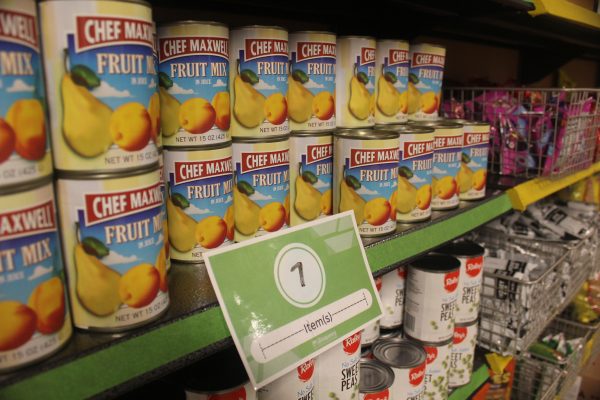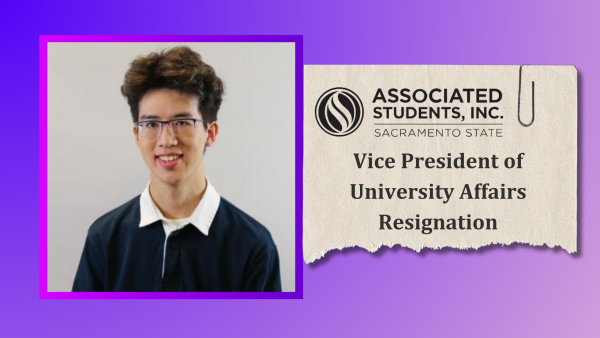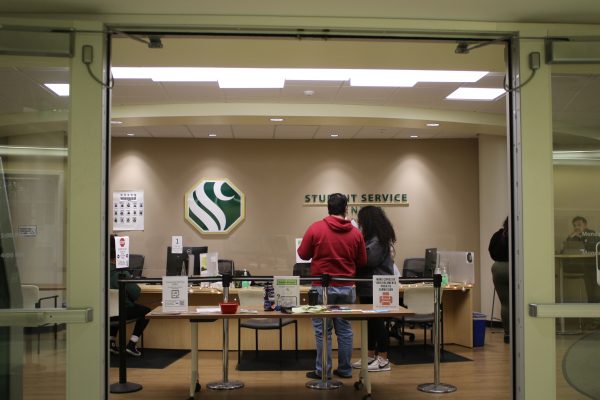Senate pushes for cheaper online textbook library
January 25, 2012
Students statewide could soon save hundreds of dollars on textbooks if a senate proposal, creating a digital library of free textbooks, passes in California.
Proposed by Senate President Pro Tem Darrell Steinberg, D-Calif, the project could save college students statewide hundreds of millions of dollars a year in education costs.
The proposal faces criticism from professors who say the online texts may not be of quality, along with the publishing industry who would have to compete with the online texts if the legislation was passed.
If enacted, the legislation would create Open Educational Resources, in which undergraduate students would be able to access approximately 50 core textbooks required for lower-division coursework through a digital open source library. An option to buy a printed version would cost $20.
If passed, Steinberg would have the plan initiated by 2014.
“There’s a clarion call from students and middle class families to make higher education more accessible and affordable,” Steinberg said in a press release dated Dec. 13.
Steinberg said textbook prices are going up four times the rate of inflation, which is becoming a giant financial burden for students.
“Many students say they drop out of college because they can’t afford to spend more than $1,000 a year on books,” Steinberg said in the press release. “If we can use technology to maintain the high quality of materials while cutting the cost, we need to do it. Open source digital textbooks can bring real relief of nearly $1,000 a year to each college student.”
Sacramento State economics professor, Craig Gallet said he is not sure how this proposal will pan out, but said if it passes it will be beneficial to students.
“Certainly if quality textbooks are created and provided to students for ‘free,’ students will benefit from a financial perspective,” Gallet said. “However, publishers will not be happy with this since it will impact their sales.”
Gallet said he sees students struggling to afford textbooks in his classes.
“Indeed, I see more and more students choosing to either not buy the textbook or buy an old edition of the textbook for a much lower price,” he said.
Gallet said there are a couple of difficulties associated with Steinberg’s proposal.
He said the legislature will need to ensure quality materials will be provided to students. He also said this will cost the state additional money, which in the current budget situation is a challenge.
A council consisting of faculty members from California public schools would select, review and approve the courses and materials for the initial round of open source textbooks.
“There would be no mandate for faculty to use these books, but when given a more affordable, a possibly free, option that does not sacrifice quality, they will do the right thing for students,” Steinberg said to the Sacramento Bee in a Dec. 13 article.
Steinberg is looking to create the program for $25 million – derived from state funds. Some of the funding would go toward acquiring course material from academics, Silicon Valley developers, nonprofits and book publishers that could be shared freely.
“As I understand it, the state will pay authors to submit ‘open source’ materials,” Gallet said. “Certainly, textbook prices have risen substantially, and coupled with rising tuition, more students are struggling to pay for their education… And so I see where folks are coming from when they argue something must be done.”
Open-source textbooks do not have traditional copyrights so they can be shared for free and updated and customized by professors for their own use.
Hoan Tran, a junior computer science major said he has saved approximately $300 on textbooks this semester by buying them through his iPad. He said if he went through the bookstore he would probably be paying $500 to $600 for books.
Tran said Steinberg’s proposal appeals to him.
“I like the idea,” Tran said. “I’m using an iPad, so I like not having to carry heavy books around along with saving money.”
Gallet said he could see students using this system to help learn material, especially if it is free.
“However, the information may not really be free, especially if it comes from a poor quality outlet,” Gallet said.
Gallet said if enacted, a system providing free textbooks online could have a severe impact on sales at the campus bookstore.
“Similar to publishers, if material is provided for free, it’s pretty hard for the bookstore to effectively compete with that,” Gallet said.
To sign a student-created petition to support the bill, visit http://www.change.org/petitions/affordable-textbooks-now.
Sean Keister can be reached at [email protected].



































































































































